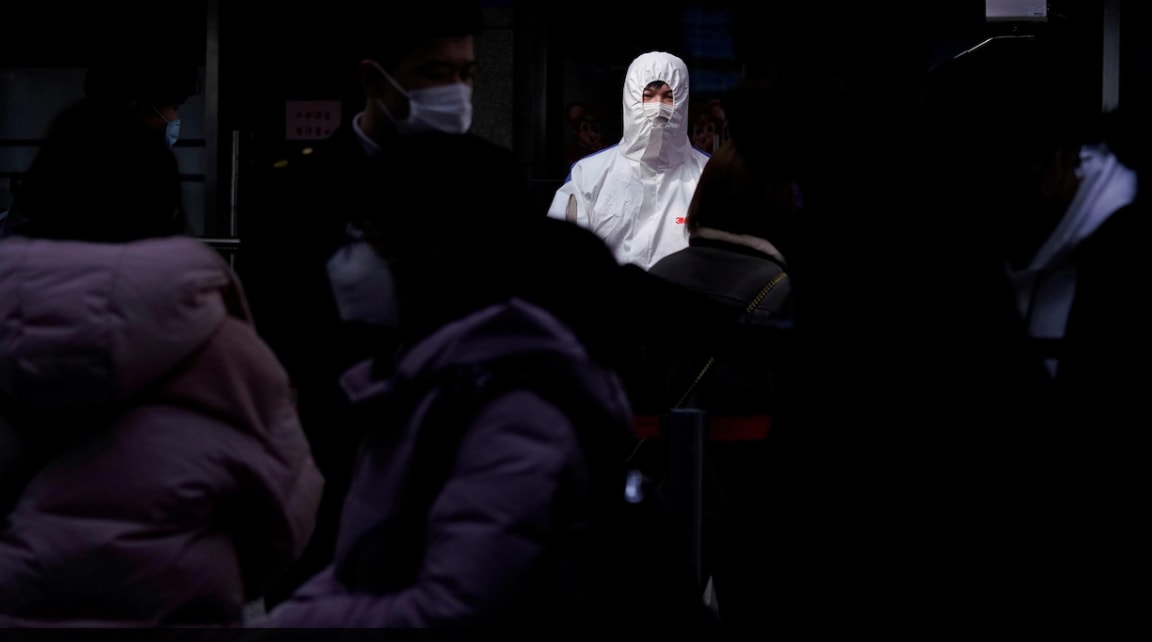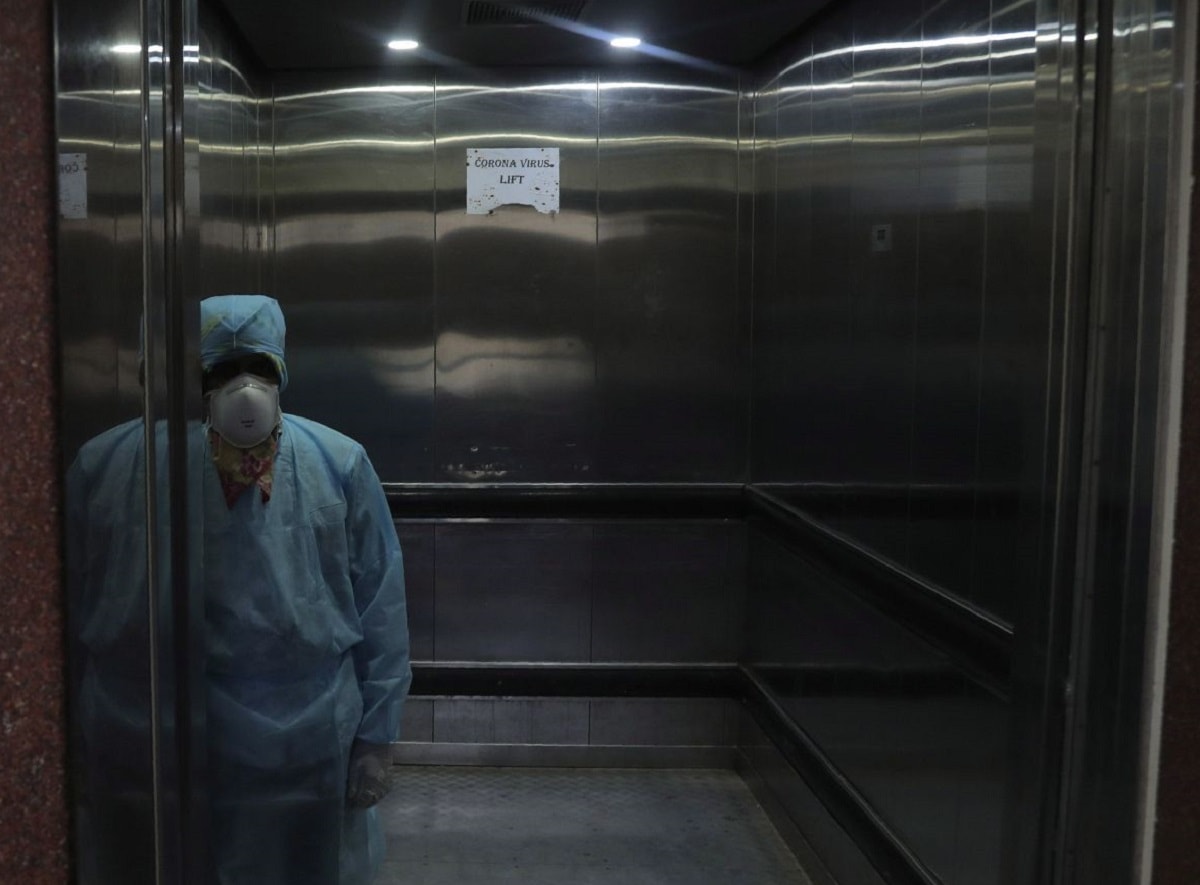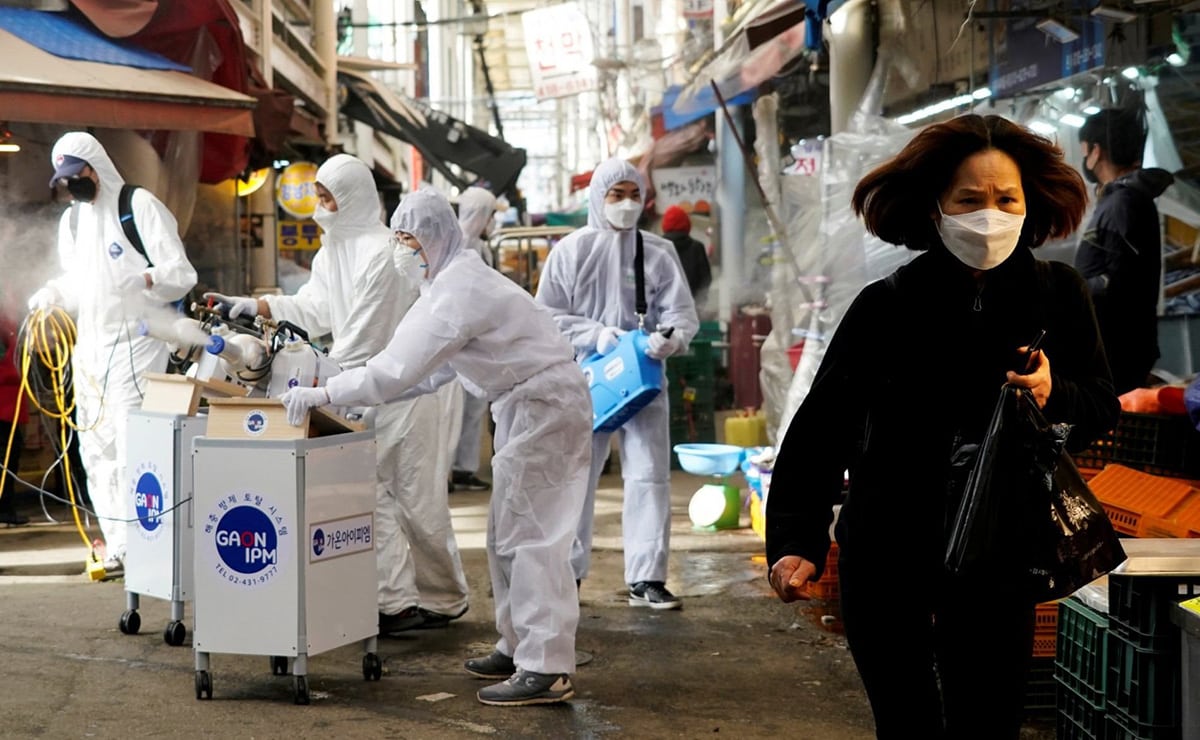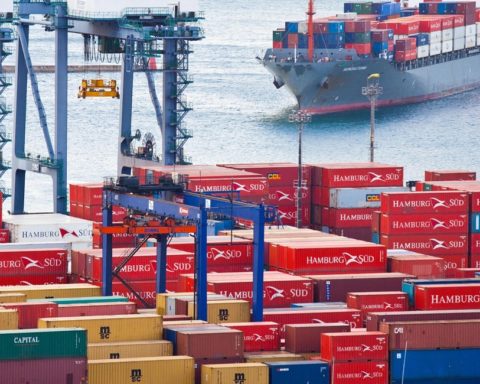The pandemic, which is forcing more than three billion people to remain confined to their homes, seems to have come as a surprise, like a plague fallen from the sky. Most of the leaders of the States that govern us swear by the hand of their hearts that this pandemic is a unique, unprecedented event of unexpected magnitude. Consequently, in the face of this unforeseen force majeure, policies are necessarily based on reactions, more or less rational, more or less validated methods, but in all cases a vague feeling of improvisation and trial and error prevails, while the macabre tallying of the dead continues to unfold, relentlessly. Yet this emergence of a new coronavirus was predictable, and the bell had been rung several times. To no avail. It's as if we're strangely deaf when disaster is foretold.
The spectacle of the world is very strange: within a few days, three billion humans have been ordered to remain confined to their homes. The economies of just about every country on Earth are brought to their knees, when they are not suffering from a severe embolism. Birds are chirping in the foliage of our cities, the streets are deserted of all traffic, the air would become extraordinarily breathable if we could take a walk to enjoy it. Couples confined to their apartments are learning to live together again, workers have discovered in a few moments that teleworking is not a luxury. Billions from the sky are pouring in to help entire sectors of the economy. New life would almost be beautiful if it weren't for the scent of death, the echoes of crowded hospitals, crammed coffins and hundreds of thousands of anxious patients.
Have they gone crazy?
In this surrealist landscape, state leaders seem to have completely lost their bearings. Here we can see a French president hammering away with a martial air that we are at war with an enemy... microscopic, a German chancellor slammed in a convenient forty, an English leader waltzing hesitantly and finally going around in circles, an American tweetomaniac leader hesitating in his choice of character: an outrageous mutt in front of his electorate or a comical trooper in front of his medical armies.
Have the leaders of the world gone mad? Unable to make choices in a situation for which they were not prepared, they hide day after day behind the oracles of scientists, they watch for curves other than those of their image, those of their dead. They flatter, spur on, threaten, so that the researchers can work to find the fatal weapon against the virus. They pounce on anything that could serve their interests by diverting emergency shipments of products destined for other countries or by trying to hijack patents and skills. Some are looking for masks, others for respirators or resuscitation beds. There is panic on board. We're closing up shop. We're closing the borders. We're shutting down. Solidarity between states has become an old memory, and Europe is conspicuous by its absence. In this hullabaloo of the world, you can see battalions of new heroes in white coats doing what they can with what they are given. They are on the front lines of saving lives, and the public knows this and applauds them.
A little bug whose name we didn't know until three months ago. A little thing that makes us checkmate and reveals the full extent of our frailties.The show takes place before our eyes in a world of high intelligence, in a world that wants to go to Mars and knows how to manipulate the secrets of matter; in a world of great technology where we want to push back the limits of age and push those of nature. This world, so sure of itself, conqueror and dominator, is shattered by a virus. A little bug whose name was unknown until three months ago. A little thing that makes us checkmate and reveals the full extent of our frailties.The first of these is our atavistic inability to contemplate disaster. The philosopher Jean-Pierre Dupuy is one of the great thinkers of catastrophe. " The terrible thing about catastrophe he writes is that not only do we not believe it will happen when we have every reason to know it will happen, but once it has happened it appears to be part of the normal order of things. Its very reality makes it commonplace. "
Before the disaster occurs, no one believes it; when it happens, it enters without embarrassment into the register of reality. This is exactly what is happening with this coronavirus pandemic. It was foretold. Many voices alerted the world to the imminence of a pandemic. All the details were there. They remained "unheard" in the etymological sense of the word: unheard.
Chronicle of a disaster foretold
UP' Magazine has several times echoed these predictions and the announced pandemic disaster. By dint of repeating ourselves, like other media, the trial of broadcasting bad news for sensationalistic purposes has sometimes been made. Yet the written word remains and these messages deserve to be reviewed in the light of day.
Visit February 12, 2018, the WHO Director-General will address a choice audience: the government summit in Dubai. In icy silence, he announces that the apocalypse has never been so close. " This is not a nightmare scenario of the future, "he says. " This is what happened exactly one hundred years ago during the Spanish flu epidemic ".
In a terribly serious tone he continues: " A devastating epidemic could start in any country at any time and kill millions of people because we are not yet ready. The world remains vulnerable. "
An epidemic with disastrous consequences for both human life and the economy.He adds: " What we do know is that it will have disastrous consequences on both human life and the economy. "He concludes by calling on the heads of state and government sitting before him to do what they can to prevent a pathogen from taking control.Result: nothing.
Other message, beginning May 2018, this time from a name that is very well known to the general public: Bill Gates, the founder of Microsoft. Informed by the latest data from the World Health Organization (WHO), he is convinced that the probability of a pandemic emergence is increasing. This character is not one to revel in bad news; he is an optimist who believes in human intelligence. Yet the speech he gives in the prestigious MIT building in front of a areopagus of doctors gives one the shivers. He said: " If you were to tell governments around the world that weapons that could kill 30 million people are currently under construction, there would be a sense of urgency to prepare for the threat. "
Finding ways to combat an emerging deadly disease.We are apparently better prepared than we were for previous pandemics," he says. We have antiviral drugs that can, in many cases, improve survival rates. We have antibiotics that can treat secondary infections such as influenza-associated pneumonia. But, he says in essence, we're not yet effective enough to quickly identify the threat of a disease and coordinate a response. He concludes with a call for governments to find ways with the private sector to develop technologies and tools to combat an emerging deadly disease.Result: nothing.
Third example, beginning June 2018. A team of scientists from the Johns Hopkins Center for Health Security publishes a report entitled " The Characteristics of Pandemic Pathogens, which establishes a framework for identifying naturally occurring microorganisms that pose a " global catastrophic biological risk "(GCBR in the terminology of public health experts). These "CBRGs" are events in which biological agents could lead to a sudden, extraordinary and widespread disaster beyond the collective capacity of national and international governments and the private sector to control it.
For researchers, the next pandemic will not come from a virus with a high mortality rate, but from a common virus, the family of those that assail us in winter, such as rhinoviruses or coronaviruses, for example. They are not very deadly, but their pandemic potential is enormous. Indeed, the authors point out that in order to destabilize governments, the economy, societies, and all health organizations, mortality matters less than a very high rate of people being sick at the same time. There is evidence that a virus that is not very deadly but highly contagious, especially through the airways, can eventually cause a mass death.
A profile of the future pandemic agent: a respiratory RNA coronavirusThe research team's work is leading to a sketch of the future pandemic agent. Its mode of transmission, the team concludes, will most likely be respiratory. It will be contagious during the incubation period, before the onset of symptoms, or when infected individuals show only mild symptoms. Finally, it will require factors specific to the host population (e.g. people not immune to it) and other characteristics of intrinsic microbial pathogenicity (e.g. a low but significant case-fatality rate), all of which together greatly increase the spread of the disease and infection. Among the criteria, the researchers add that this pathogen is distinguished by the fact that no direct treatment or prevention method exists to date against it.Among all the bestiary of microbes that the researchers have analyzed, they distinguish one particular family: that of RNA viruses such as the SARS coronavirus, for example. The researchers therefore recommend that surveillance of human infections caused by RNA viruses of respiratory origin should be a high priority. Clinical research programs aimed at optimizing the treatment of respiratory RNA viruses should be better funded. Finally, the authors of the report call for increased priority to be given to research on vaccines against respiratory RNA viruses, including a universal influenza vaccine.
Result: nothing.
They knew
These messages are dated 2018. They have no doubt been read and seen by cohorts of leaders around the world. Politicians, government officials, state health authorities were aware of them. There's no question about it.
Did they take the right action? In the same year, 2018, in France, did Health Minister Agnès Buzyn check the stocks of masks that the country needs? Did she ask herself whether we had enough resuscitation beds or respirators, or testing equipment? What have her colleagues in other countries done? Has President Trump taken steps to protect American citizens from the epidemic wave that is going to hit his country? Certainly he has one word of apology: he was very busy tweeting nonsense. What steps has the world taken in the face of the time bomb epidemic that threatens to explode in Africa?
As the news of the disaster grew more urgent...As the announcements of the disaster became more urgent wrote the biologist Eric Muraille, underfunding and managerial management of basic research and health services reduced our ability, particularly in France, to anticipate and respond to epidemics. Researchers in precarious situations, cooperative networks between weakened research teams, this situation is not conducive to maintaining skills and exploring new areas of research that could contribute to a better understanding of emerging infectious agents and identify new threats. The practice of "just-in-time" in hospitals, which has become the norm, reduces their capacity to deal with major health crises. The cuts in funding for these public services over the years, as well as the short-sighted management of the public health system, has de factoextinguished any capacity for anticipation. President Macron vowed in his March 20 speech: " What this pandemic reveals is that there are goods and services that must be placed outside the laws of the market. ". Isn't it already too late?At some point, we will have to learn the lessons of this health crisis that is shaking the world. All the more so as disasters are bound to happen again. This time they will be climatic. They too are being announced loud and clear. We know that we will have deadly heat waves as early as next summer, perhaps even before we recover from the coronavirus episode. We know that the sea is nibbling away at coastlines all over the planet. We know that millions of climate refugees are going to be clustering at the borders. We know that the world will become unbreathable, we know that our food, our water, our children are in danger. We know that our food, our water, our children are at risk. We know.













